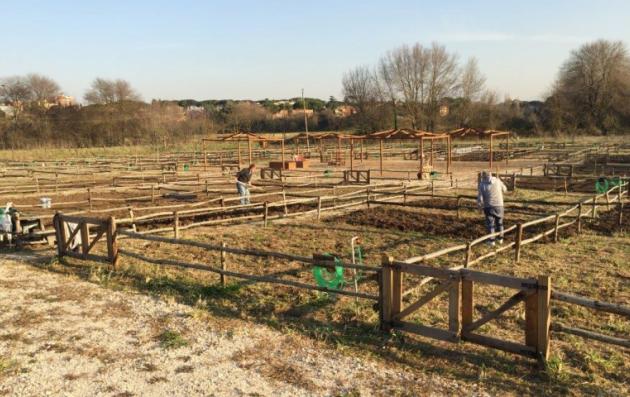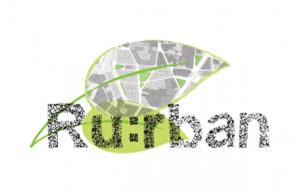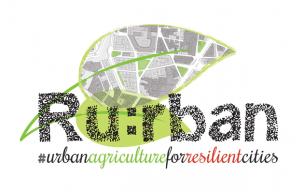Date of label : 02/06/2017
-
Rome , Italy
-
Size of city : 2.874.038 inhabitants
Previously transferred

Summary
The City of Rome developed a participatory urban gardening project. The aim of the project is two-fold: it fights social exclusion and poverty and allows brownfield recovery.
Working with NGOs, citizens, disadvantaged people and minorities, the city uses the urban and suburban agriculture as a means to improve governance processes. Alongside employment policy, social and intercultural dialogue has a pre-eminent role to play. The importance of other factors such as housing, health, culture and communication should also be acknowledged.
The solutions offered by the good practice
The good practice contributes to the improvement of the governance processes by connecting different competencies and municipal offices such as social, environment, urban planning and innovation departments. UPA is an innovative practice that could provide a governance model for sustainable development, environmental protection, brownfield recovery and reuse, social cohesion and poverty fighting (i.e. immigrants, elderly, disabled people, AIDS and Alzheimer’s patients, prisoners, etc.).
Building on the sustainable and integrated approach
Rome (IT) has the widest urban agriculture area in Europe. Its agricultural landscape is immersed in a network of archaeological sites, monuments, villas and farmhouses. Green areas are about 86,000 hectares, 67% of its entire territory. While most green areas are located outside the urban perimeter, several agricultural corridors connect the periphery with the city centre of Rome. This unique feature distinguishes Rome from other European cities that are characterised by a division between urban and rural areas. Rome thus offers a unique potential for further development: citizens are now developing permaculture systems and producing healthier organic food for self-consumption. The aforementioned projects' approach to tackling urban challenges is the result of a territorial cooperation process, involving different partners of the Mediterranean Basin under ENPI CBC MED Programme: the Royal Botanic Garden and the National Department for Forests and Agriculture (Jordan), the city of Mahdia (Tunisia), the metropolitan area of Barcelona and the City of Rome.
Based on a participatory approach
Participatory mechanisms for communities and citizens in the new UPA policies/actions allow the former groups a greater capacity for action and decision making on Urban Governance: Urban Agriculture management strategies herein are oriented towards participatory citizenship. Stakeholder like local NGOs and horticulture associations did contribute to the set-up of the Regulation of urban gardens (City Council Resolution, July 2015) activating local representatives of such communities in a process of social and intercultural integration. Socialisation among different communities is the core of this activity.
What difference has it made?
The previous experience allowed the City of Rome to experiment the application of the Regulations of urban gardens of Rome approved in 2015, through 3 pilot projects assigned to different non-profit, multipurpose associations in charge of needy and disadvantaged people. At present, approx. 300 people are direct beneficiaries of the parcels. Dozens of associations and thousands of citizens are involved in the pilot projects, and awareness was raised among municipal officers and citizens. The Regulation of the Urban gardens of Rome (City Resolution of July 2015 or “Regolamento degli orti urbani”) is to be considered an extremely important outcome as a governance tool. According to the “Regolamento”, the use of pesticides, chemical fertilisers and GMO seeds are prohibited. The sustainability of the UPA pilot project is ensured by the commitment of the City of Rome (i.e. the “Regolamento”), the Districts, the associations as "managers" of the pilots, the thousands of citizens involved, and by the coordination with a network of urban gardens and other local and national organisations.
Transferring the practice
Rome led the RU:RBAN Network over 2.5 years, transferring its practices to 6 other cities: Vilnius (Lithuania), Caen (France), Krakow (Poland), Thessaloniki (Greece), Loures (Portugal), and Coruna (Spain). You can, in particular, check Vilnius’s Good practice here. The approach was based on the three components/elements of the Good practice: capacity building in organizing urban gardens, Inspiring and training people to manage urban gardens (Gardeners) and Urban gardens governance & regulations. The network’s outputs can be found on the URBACT website. RU:RBAN was also reloaded with a new Transfer Network in 2021-2022.
-
407_rome_gpsummary.pdf(PDF, 2Mo)


